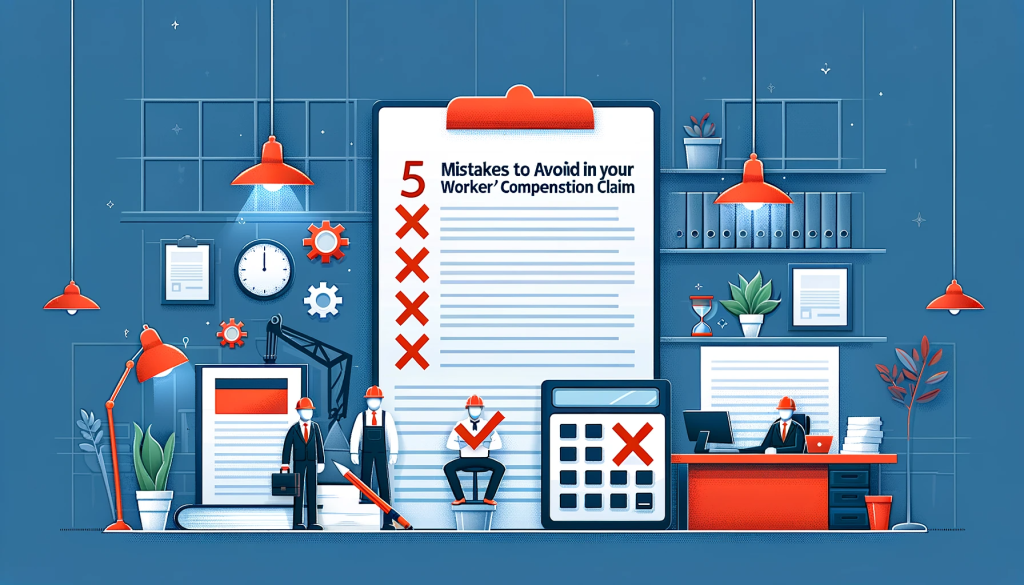Suffering a work-related injury can not only be physically and emotionally challenging but also deeply unnerving due to the subsequent workers’ compensation processes. It’s crucial to understand the potential pitfalls and common mistakes individuals make when dealing with workers’ compensation claims. Americana Injury, an experienced workers’ compensation service provider, sheds light on the top five mistakes people make when bringing a workers’ compensation claim. By delving into these critical errors, this guide will provide valuable insights and expert advice on how to avoid these missteps, enabling individuals to navigate the complex and often daunting workers’ compensation claim process with confidence and clarity.
The Critical Importance of Reporting Your Injury Accurately
The pivotal first step in the workers’ compensation process is accurately reporting your work-related injury. Failing to inform healthcare providers about the nature of the injury can lead to inconsistencies in the information provided, potentially resulting in claim denial. Americana Injury underscores the importance of consistently reporting the injury as work-related to all healthcare providers and avoiding any discrepancies in the information provided. A critical warning is issued against the serious consequences of not correctly documenting the work-related injury, such as being disabled from work without any mention of being hurt on the job in the medical records.
Navigating Compliance with Workers’ Compensation Medical Requirements
Compliance with workers’ compensation requirements regarding medical treatment is a vital component of the claim process in Texas. In North Carolina, the insurance company holds control over healthcare provider selection, and non-compliance can lead to claim denial. Similarly, in Virginia, refusal to comply with healthcare provider choices can result in claim denial and additional challenges in the claim process. Americana Injury elucidates the significance of adhering to these requirements to avoid potential issues arising from non-compliance.
Understanding and Acting on Award Agreements
Upon receiving an award agreement, individuals signify winning their workers’ compensation case. Americana Injury emphasizes the importance of understanding and taking action upon receiving an award agreement. Failing to act upon this crucial document can lead to missed opportunities for securing benefits and protection post-return to light duty work, underscoring the necessity of comprehending and proactively responding to award agreements.
The Consequences of Delayed Workers’ Compensation Claims
Timeliness is key in filing a workers’ compensation claim. Americana Injury highlights the necessity of filing a claim within a specific timeframe and illustrates scenarios demonstrating the negative consequences of delayed filing, such as losing entitlement to benefits and potential recovery for severe injuries. Understanding the time-sensitive nature of filing a claim is paramount in securing one’s entitlement to benefits and seeking appropriate compensation for work-related injuries.
Quitting Your Job Post-Injury: A Detrimental Mistake
Perhaps the most critical mistake is quitting one’s job after sustaining a work-related injury. Americana Injury elucidates that quitting can severely impact an individual’s ability to receive compensation, as it can be interpreted as the individual’s choice to be out of work rather than a result of the work-related injury. Advising individuals to seek alternative solutions if the employer is unable to accommodate their work restrictions, Americana Injury emphasizes the detrimental consequences of quitting post-injury, urging individuals to carefully consider their options before making such a decision.



